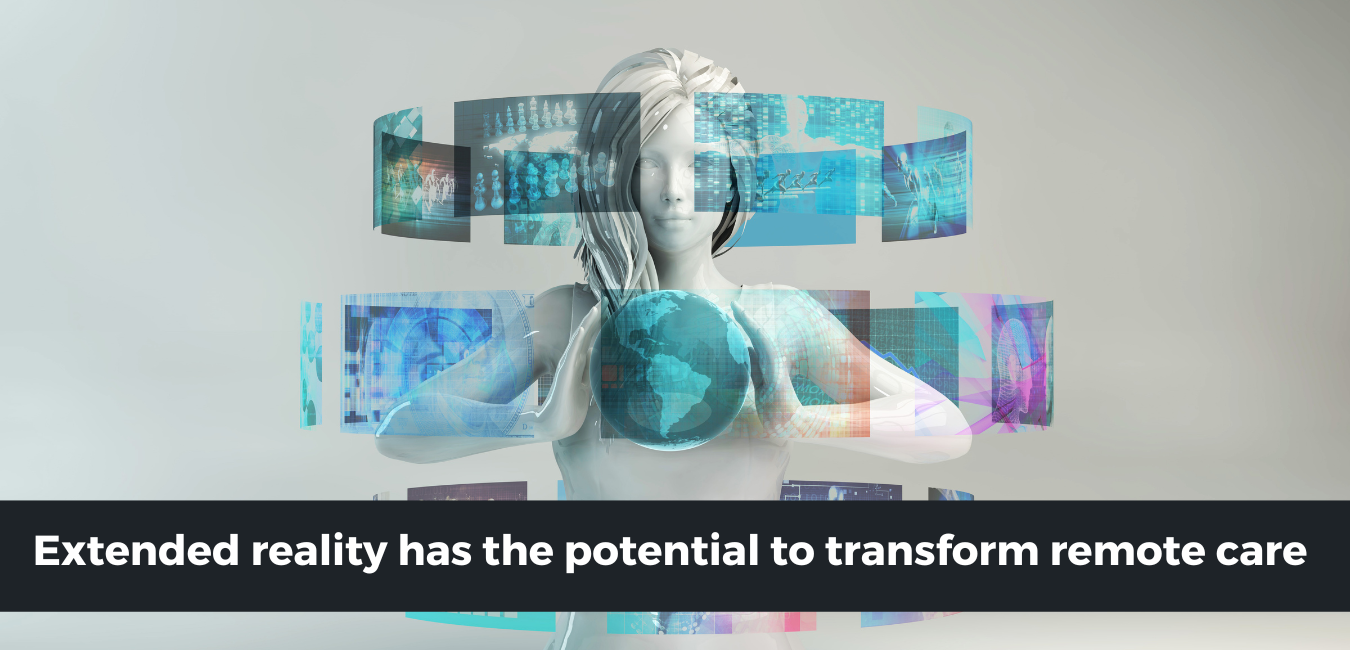How Will a Shocked Healthcare Industry Emerge Post Pandemic?

“Normal”
The definition of this word changed entirely after the deadliest pandemics of all time hit the world by surprise. This health crisis is now pushing the world towards global restructuring. While some organizations are looking for survival solutions, others are trying to position and sustain themselves in the “new normal” world.
Undoubtedly, no one knows when things will get back to normal. Even if they do, they will no longer feel like the normal that we always cherished. Clearly, like other industries, healthcare companies had to take a step back and pave the pathway to create strategies that could help them survive the virus outbreak.
The aim is to create an environment that allows both providers and customers to engage with each other without worrying about contracting the virus. Hence, in this unprecedented new reality, healthcare organizations have developed the following measures to stay ahead of the curve.
Keep reading, and you’ll find out more about the measures!
Reshaping Healthcare Delivery With Virtual Health
While telehealth was already blooming before the COVID-19, the patients did not acknowledge its presence as much. However, the pandemic introduced the concept of telehealth in masses. Thanks to this technology, doctors, and caregivers were able to meet patients' needs right from the comfort of their homes.
The rise of non-traditional platforms like mobile phones, texts, and messaging apps allows the industry to take the care model to the next level. In the coming years, the focus will be on making it more extensive to improve the patient experience.
Transforming Clinical Trials to Minimize in-person Clinic Visits
Like clinical visits, clinical trials also had to change their everyday functioning in the face of the pandemic. It was pretty challenging to do things remotely. So, companies are focusing on technologies that can allow them to conduct clinical trials without harming the individuals involved.
This is helping the trial participants decrease their trips to the hospital or the clinical office. Thus, it will allow many pharmaceuticals to attract participants to take part in their trials.
Reducing Everyday Tussle With Innovative Digital Technologies
Before the pandemic, the clinicians were burdened with loads of work. Fortunately, after COVID, not only are physicians using technology to provide impeccable services, they are using the same innovation to take care of the administrative tasks as well. The physicians are explicitly using it for maintaining health records online using EHRs or electronic health record systems.
In fact, various leaders suggest that digital technology used in the right way would help solve a plethora of pain points clinicians encounter every day. Thus, it will enhance the probability of efficiency and satisfaction, leading to happier patients.
Starting this year, experts are making a shift to process automation. The aim is to understand physician’s behaviors and devise marketing technologies to strengthen the relationships between doctors and patients to increase demand.
Building a Responsive Supply Chain
The health industry will be changing its stance by redefining the supply chain to make it more flexible like that of the automotive or technology industry. Plus, the focus will be on shoring manufacturing and finding ways to manage costs or tax implications.
The aim will be to make the supply chain diverse, secure, and responsive to scale up as per customer needs.
What Next?
- Did you know that it took around 17 years to introduce any breakthroughs into clinical practice? But Covid led the healthcare providers and institutions to adopt new technologies and integrate them into key specialties like diagnostic medicine. Thus, it will enhance the use of evidence-based care in the modern world.
- The FDA is ready to bring new tests into the market. For instance, during the peak of the pandemic, the regulatory body authorized around 114 PCT tests. The approach is changing to evaluate new diagnostic tests, and it will continue to remain the same post-pandemic. In short, the body is taking note of the real-world evidence and allowing patients to access tests rapidly.
- The COVID-19 hit the healthcare sector pretty severely. The states were unable to cope up with the surge. So, the out-of-state licenses became a go-to solution to staff the transformed facilities with the professionals and clinicians.
In fact, the state of California addressed this shortage by creating a State Health Corps where retired as well as in-training experts could help with the labor shortage. The healthcare providers are thinking of continuing this model. And as an incentive, they might even clear the student debt. Isn’t that great?
- Telehealth was more sort of a niche business or a part of a commercial health plan. But after the pandemic, it became a necessity. People and practitioners started using it on a mass scale out of fear. However, the ease, comfort, and convenience led to a spike in its demand.
- One can expect more public-private partnerships in the coming times. This approach will create an inclusive approach that will help tackle problems in many ways.
Final Takeaways- Emerging Stronger With Interoperability
After 2021, all the providers will have to free patient data rather than limiting it to themselves. The idea is to share the data and move towards a patient-centric system. However, only a few organizations think that this interoperability will be a better opportunity to grow.
This article was an attempt to answer the question, “how can we look around the bend and get past the stressors of the pandemic?” Whatever process, methodology, or parameter you choose, the aim must be to emerge stronger.
Ideally, the focus must be towards:
- Resolving current and futuristic issues.
- Building resilience.
- Returning to the normal “or what we say new normal.”
- Reimagining the business and healthcare models.
- Introducing reforms that will enable the healthcare industry to prepare itself.
While it might still take time to win against the pandemic battle, the leaders of today are leaving no stone unturned to devise a path that’s economically and socially viable.
So, tell us, what do you think will rule the post-covid world? Will the healthcare industry adopt innovative measures to further streamline the everyday tasks for patient-friendly service offerings?










